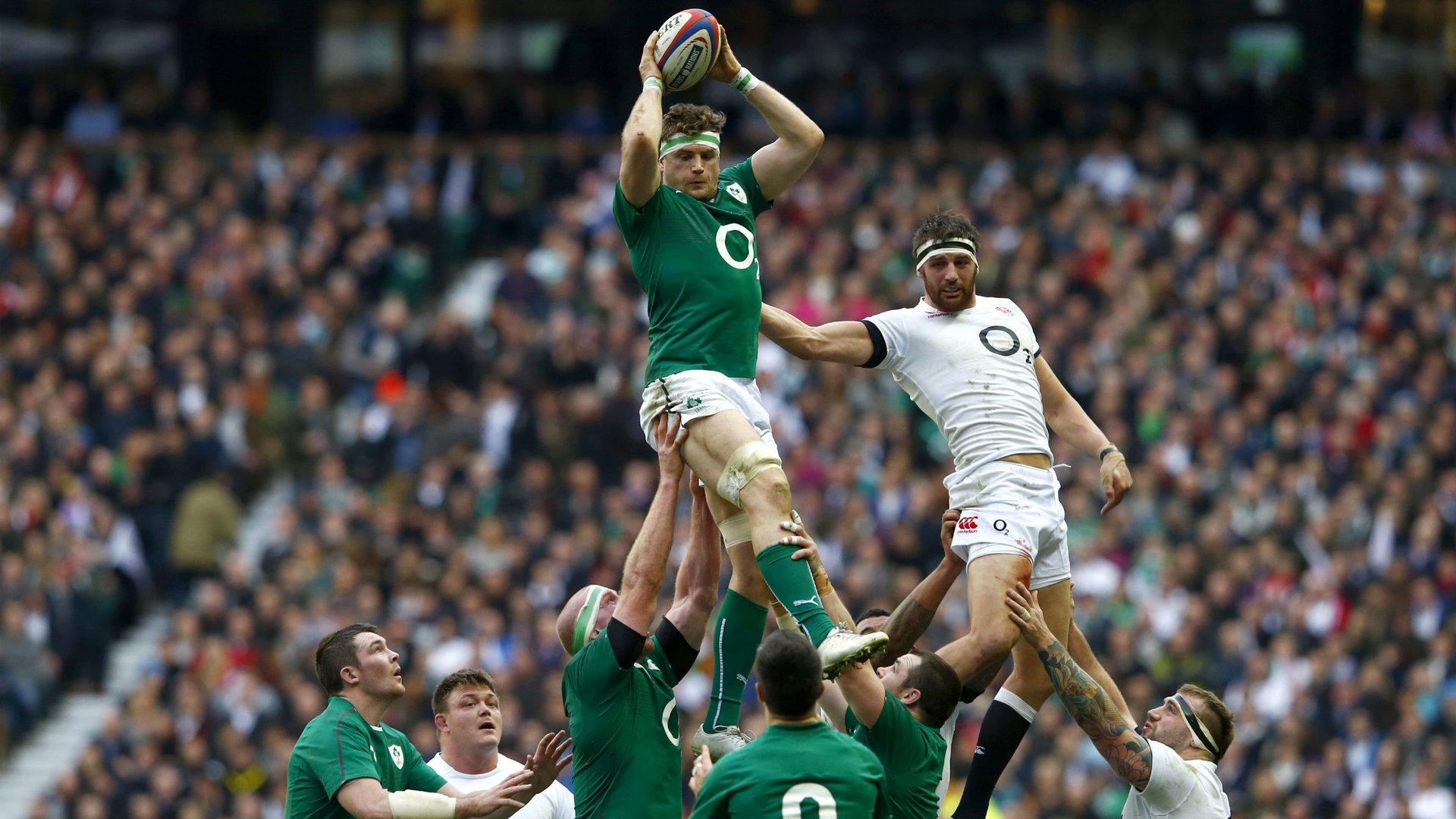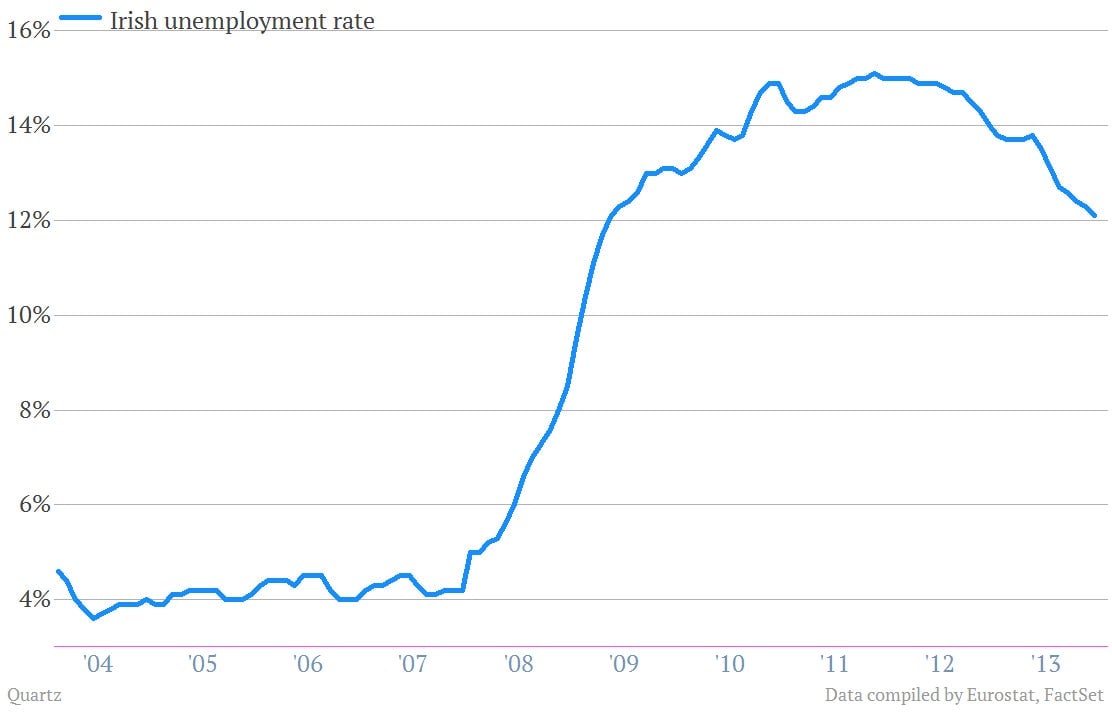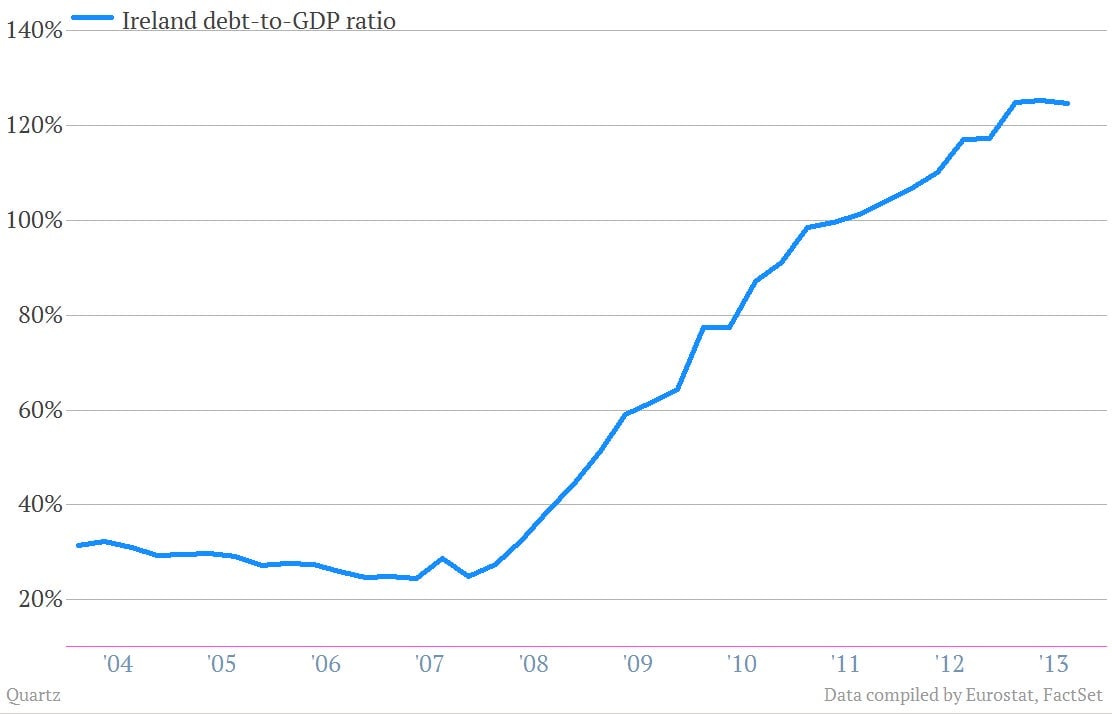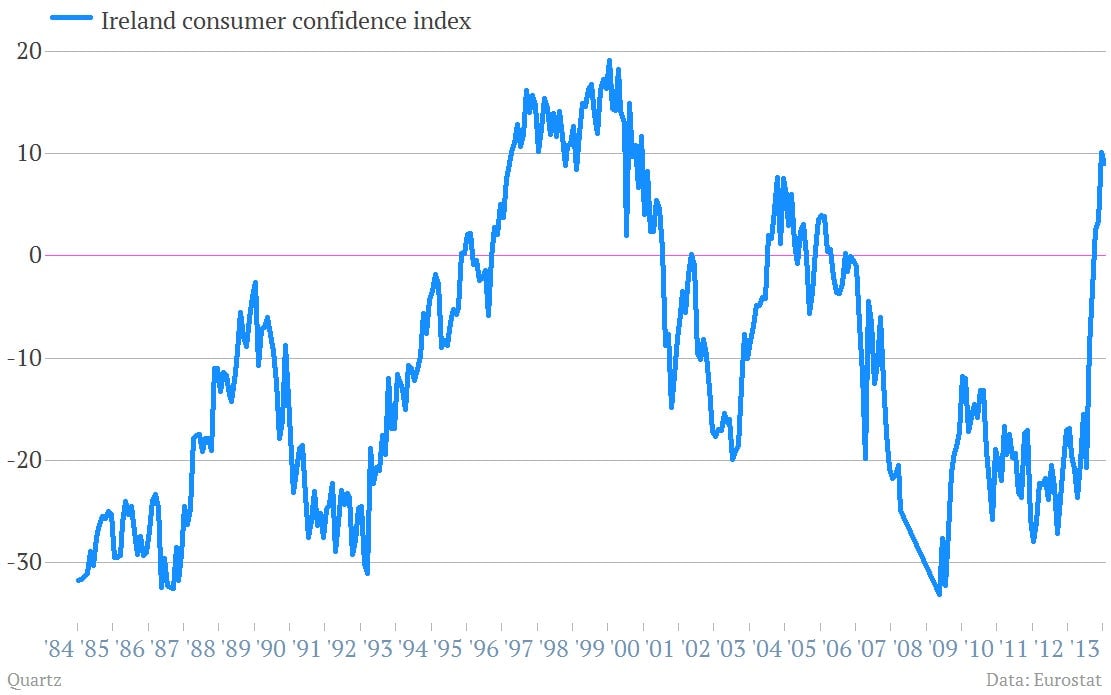The Irish are apparently happier when they’re miserable
It seems rather hard to explain.


It seems rather hard to explain.
Irish unemployment has been above 12% for nearly five years.

The national debt load is still a huge weight around the economy’s neck.

And yet the Irish are in the best mood they’ve been in for years. European measures of consumer sentiment in Ireland have surged in recent months. (Other gauges confirm the improvement.)

In other words, the Irish populace is in a better mood now than they were during the peak of the recent housing boom in the mid-2000s.
How can that be? Well, it might just be a question of relativity. Perhaps things have been so bad over the last few years, that the small signs of improvement—such as Ireland’s ability to exit its bailout program—have a large impact.
Or it could be that there’s something about Irish society that helps folks emotionally weather extreme economic difficulties. For example, large-scale surveys of national well-being show Irish levels of happiness didn’t tumble anywhere near as much as in other countries at the center of the European debt crisis such as Greece and Spain. (Although, the jobs crisis in those countries is much worse than Ireland’s ever was.)
In fact, large scale measures of well-being—which encompass elements such as GDP-per-capita, life expectancy, freedom from corruption, and social elements such as “having someone to count on”—show Ireland is about as happy now as it was when the economy was at its peak.